
The Allman Brothers Band was an American rock band formed in Jacksonville, Florida, in 1969 by brothers Duane Allman and Gregg Allman, as well as Dickey Betts, Berry Oakley (bass), Butch Trucks (drums), and Jai Johanny "Jaimoe" Johanson (drums). Subsequently, based in Macon, Georgia, they incorporated elements of blues, jazz and country music and their live shows featured jam band-style improvisation and instrumentals.

Howard Duane Allman was an American rock and blues guitarist and the founder and original leader of the Allman Brothers Band, for which he was posthumously inducted into the Rock and Roll Hall of Fame in 1995.
Hour Glass was an American soul band based in Los Angeles, California in 1967 and 1968. Among their members were two future members of the Allman Brothers Band and three future studio musicians at the FAME Studios in Muscle Shoals, Alabama.

Hour Glass is the debut studio album by the group of the same name, issued in October 1967 on Liberty Records. The band featured Gregg Allman and his brother Duane Allman, who later formed The Allman Brothers Band.
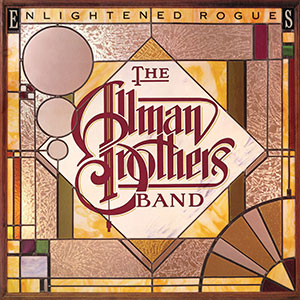
Enlightened Rogues is the sixth studio album by American rock band the Allman Brothers Band. Produced by Tom Dowd, the album was released in February 1979 in the United States by Capricorn Records and PolyGram Records elsewhere. The Allman Brothers Band had broken up in 1976 following internal turmoil, amplified by escalating drug use. The band members splintered into different acts — among those Great Southern, Sea Level, and the Gregg Allman Band. Guitarist Dickey Betts approached his bandmates in 1978 with the prospects of a reunion. It is the first to feature guitarist Dan Toler and bassist David Goldflies. Living together in Sarasota, Florida, they rehearsed and wrote the material for their next album in fall 1978.
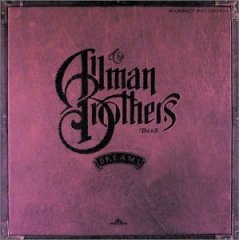
Dreams is a compilation album by the Allman Brothers Band. Packaged as a box set of four CDs or six LPs, it was released on June 20, 1989.
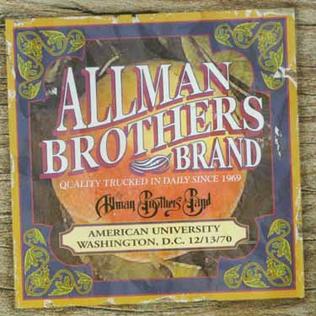
American University 12/13/70 is a live album by the Allman Brothers Band. The first of a series of archival concert recordings from the Allman Brothers Band Recording Company, it features the group's original lineup. It was released in April 2002.

Live at the Atlanta International Pop Festival: July 3 & 5, 1970 is a two-CD live album by the Allman Brothers Band. It features their two performances at the 1970 Atlanta International Pop Festival, at the Middle Georgia Raceway in Byron, Georgia. It was released in 2003.
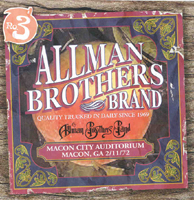
Macon City Auditorium: Macon, GA 2/11/72 is a two-CD live album by the Allman Brothers Band. It was recorded at the Macon City Auditorium in Macon, Georgia on February 11, 1972. The third archival concert album from the Allman Brothers Band Recording Company, it was released in 2004.

Nassau Coliseum: Uniondale, NY: 5/1/73 is a two-CD live album by the Allman Brothers Band. It was recorded at Nassau Coliseum in Uniondale, New York on May 1, 1973. The fourth archival concert release from the Allman Brothers Band Recording Company, it features the 1972 to 1976 lineup of the band – Gregg Allman, Dickey Betts, Chuck Leavell (piano), Lamar Williams (bass), Jaimoe (drums), and Butch Trucks (drums). It was released in 2005.
The 31st of February was an American rock band formed by Jacksonville, Florida natives Scott Boyer, David Brown, and Butch Trucks.

Ton-Ton Macoute! is the 1970 debut solo album of American blues musician Johnny Jenkins. Jenkins had previously led The Pinetoppers, a band which at one time featured Otis Redding. Jenkins then appeared on two Redding albums, playing guitar, before releasing his solo debut.
"Whipping Post" is a song by The Allman Brothers Band. Written by Gregg Allman, the five-minute studio version first appeared on their 1969 debut album The Allman Brothers Band. The song was regularly played live and was the basis for much longer and more intense performances. This was captured in the Allman Brothers' 1971 double live album At Fillmore East, where a 22-minute, 40-second rendition of the song takes up the entire final side. It was this recording that garnered "Whipping Post" spots on both the Rock and Roll Hall of Fame's 500 Songs that Shaped Rock and Roll list and Rolling Stone's list of "The 500 Greatest Songs of All Time", which wrote, "the song is best appreciated in the twenty-three-minute incarnation on At Fillmore East."

Shades of Two Worlds is the tenth studio album by the Allman Brothers Band. Among the tracks are several longer songs of varying genres: the rock song "Nobody Knows"; jazzy instrumental "Kind of Bird"; and the blues-rocker "Get On with Your Life". Dickey Betts wrote or co-wrote five of the eight songs. Newer member Warren Haynes also has co-writing credits on five songs, while namesake Gregg Allman is only credited on two songs. There is also a Delta Blues cover of Robert Johnson's "Come On in My Kitchen". It is the band's first album to feature percussionist Marc Quiñones.
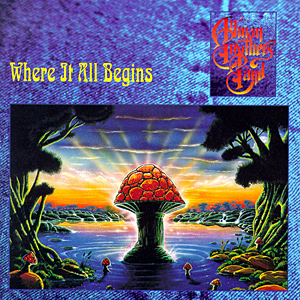
Where It All Begins is the eleventh studio album by the Allman Brothers Band. "No One to Run With" obtained the most album-oriented rock airplay, while "Soulshine", written by Warren Haynes, gained success as a concert and fan favorite. Gregg Allman also started to confront his substance abuse problems in the past on songs such as "All Night Train". The album sold considerably better than its predecessor, Shades of Two Worlds. In 1998, the album went Gold. Nevertheless, critical reception was weaker. This was also the last studio album the group recorded with original guitarist Dickey Betts.

An Evening with the Allman Brothers Band: First Set is the thirteenth album by the rock group the Allman Brothers Band. It was recorded live in December 1991 and March 1992, and released in 1992.
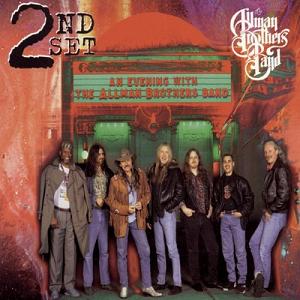
An Evening with the Allman Brothers Band: 2nd Set is a live album by the American rock group the Allman Brothers Band. It was recorded in 1992 and 1994, and released in 1995. The recording of "In Memory of Elizabeth Reed" was nominated for a Grammy Award for Best Pop Instrumental Performance at the 38th Annual Grammy Awards, but it lost to "Mariachi Suite" by Los Lobos. The recording of "Jessica" included on the album won a Grammy Award for Best Rock Instrumental Performance at the 38th Annual Grammy Awards in 1996.

The Gregg Allman Tour is the first live album by Gregg Allman, released in 1974. It was recorded at Carnegie Hall and Capitol Theatre. It peaked at number 50 on the Billboard Pop Albums charts in 1974. It was originally released as a double LP.
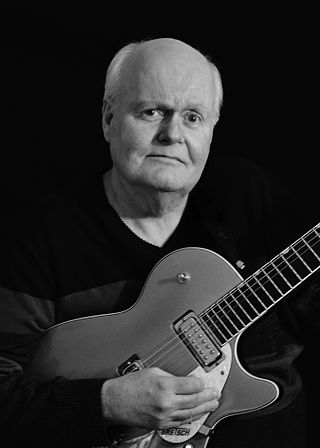
Jesse Willard "Pete" Carr was an American guitarist. Carr contributed to successful recordings by Joan Baez, Luther Ingram, Bob Seger, Paul Simon, Willie Nelson, Joe Cocker, Boz Scaggs, Percy Sledge, The Staple Singers, Rod Stewart, Barbra Streisand, Wilson Pickett, Hank Williams, Jr., and many others, from the 1970s onward.
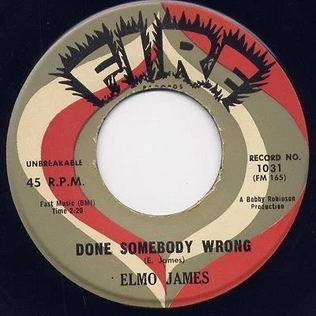
"I Must Have Done Somebody Wrong" is a blues song written and recorded by Eddie Kirkland in 1959. Using the same lyrics but modifying aspects of the music, Elmore James recorded it as "Done Somebody Wrong" in 1960; he took sole writing credit for it and it came to be known as an Elmore James song. "Done Somebody Wrong" was interpreted by the Allman Brothers Band in 1971 and featured on their classic live album At Fillmore East. As Billboard magazine has stated, the song became "more associated with the Allmans than with James in the end."
















